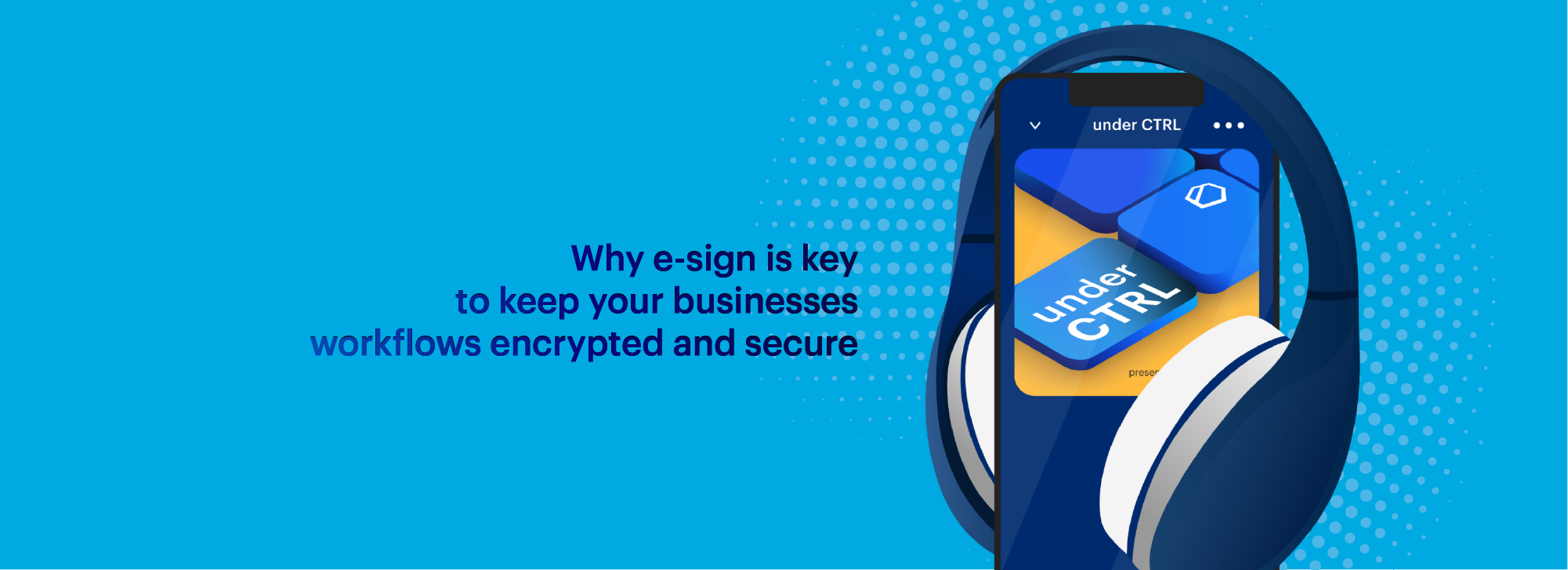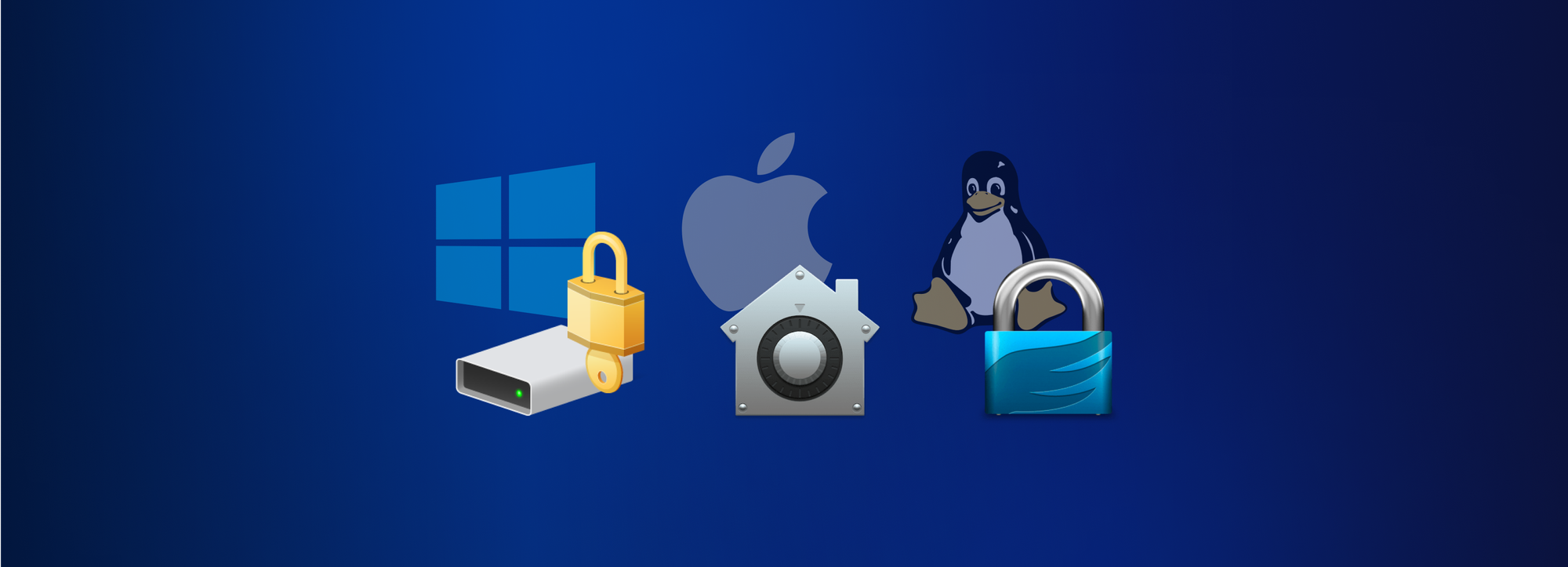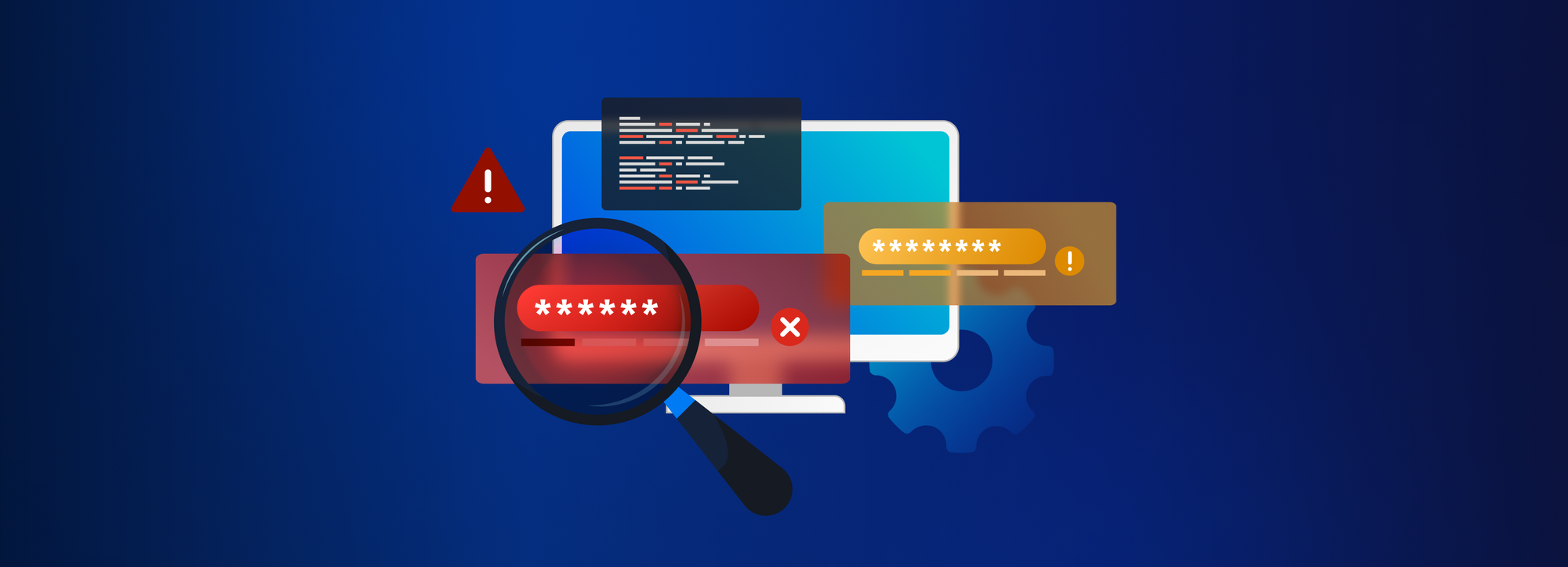Why eSign is key to keeping business workflows encrypted and secure

When companies talk about eSignatures, they usually focus on the benefits they bring to office efficiency. But while digital signatures really do streamline everyday business tasks such as processing invoices and negotiating contracts, they also have another, less obvious benefit: cybersecurity.
With a little bit of digital know-how, companies and organizations can also use eSignatures to improve the security of their documents and keep customer information safe. Using digital signatures can be a valuable way to reduce the risk of accidental data leaks — such as the loss of important documents in transit — and protect against malicious cyberattacks.
Tresorit’s co-founder and CEO, István Lám , joined the Swiss Cyber Institute to discuss in depth how electronic signatures can benefit modern businesses, presenting some of Tresorit’s latest case studies.
You can listen to the full episode here, or keep reading for our quick summary on why eSignatures are a must for companies that take cybersecurity seriously.
1. It’s often the missing link in digital workflows
For most organizations, the majority of business processes have already gone online.
But if you’ve already created your proposals using computer-based design software, held your meetings online, shared paperwork in the cloud, and negotiated a contract via email, why should you be forced to print a physical document at the final hurdle?
Or as István puts it: “Even though we’re living in a 21st century and we see digitalization everywhere, I'm still facing cases when a partner will say, okay, print this out, sign it, scan it, and send it back. Is it really the best way?”
With the use of digital signatures, documents can be stored, processed, and protected throughout their whole lifecycle — including storage and deletion — in a single, secure environment. This means less work for employees, but also less of a chance for documents to get lost or end up in the wrong hands. For companies, it really is about harnessing the best of both worlds.
2. You can control who sees your data
Paper documents bring risks.
Physical copies of even the most important files can easily go astray. Employees can accidentally leave contracts on their desks or in the photocopier. Absent-minded assistants can distribute documents to the wrong in-trays, exposing confidential information to prying eyes. Busy CEOs can lose contracts among reams of paper, or leave briefcases filled with confidential information on the train.
These may seem like innocent mistakes, but they are still considered data breaches by lawmakers and regulators. An accidental misstep could still see your firm under the scrutiny of data security regulators or forced to pay a hefty fine, especially if you are working under legislation such as the GDPR.
Electronic signatures mitigate these risks. If you send a document to be signed digitally, then it doesn’t need to be passed through a chain of assistants, secretaries, and middle managers. In fact, it’s only going to one place: the inbox of the intended signee.
3. It provides extra security measures across your business — even with external partners
On the surface, digital signatures seem simple — in fact, almost as simple as writing your name. This is deliberate: good eSign software is designed to be as user-friendly and intuitive as possible.
But scratch beneath the surface, and you’ll find that digital signatures have a host of hidden features designed to stop fraud and protect the integrity of the virtual document for which they are used.
Digital files carry extra information that can be used to ensure the file you have received is genuine and that it has been sent by a person or company that you trust.
If you send a document to be signed digitally with tools such as Tresorit eSign, you’ll also be able to revoke access to a particular file if you have concerns later down the line.
All these tools can be used not just within your own office, but when you send documents to external partners, employees, and contractors working remotely across the world.
With many data regulators now stipulating that not only individual companies, but also their suppliers and partners remain compliant with data protection laws, eSignatures are an important tool to ensure cybersecurity is taking priority across your entire supply chain.
4. It’s the perfect partner for end-to-end encryption
You’ve made the jump to digital signatures. Messy in-trays, missing pages, and misplaced documents are now a thing of the past. But what happens if your company faces a cyberattack?
The real benefit of using eSign software is that it can be combined with industry-leading end-to-end encryption.
During the signature process, digital documents tend to move through organizations from inbox to inbox, or in between cloud-based folders. If your organization holds sensitive data — whether that’s client information or corporate R&D, financial, or health data — these inboxes and folders could come under attack from those who wish to leak or exploit that data.
If you store your files within Tresorit’s secure digital workspace or send them to be signed using Tresorit eSign, you know that your documents are being protected by end-to-end encryption.
With end-to-end encryption, the digital keys needed to access your information are only available on your individual device.
This means that even if your files are attacked after they have been sent to be signed — whether they’re in transit or being stored on a server — hackers won’t be able to read or use any of the information they find.
Even Tresorit itself can’t access your information. As István explains: “What we are storing is gibberish; what we see cannot be used to identify anyone — because we, as a provider, don’t have access to the keys. […] If it’s not encrypted, private data is not private.”
If you’d like to learn more about how Tresorit and electronic signatures can protect your business, you can listen to István’s talk with the Swiss Cyber Institute — including case studies from a range of government departments and the wealth management, fintech, and legal sectors — below.






